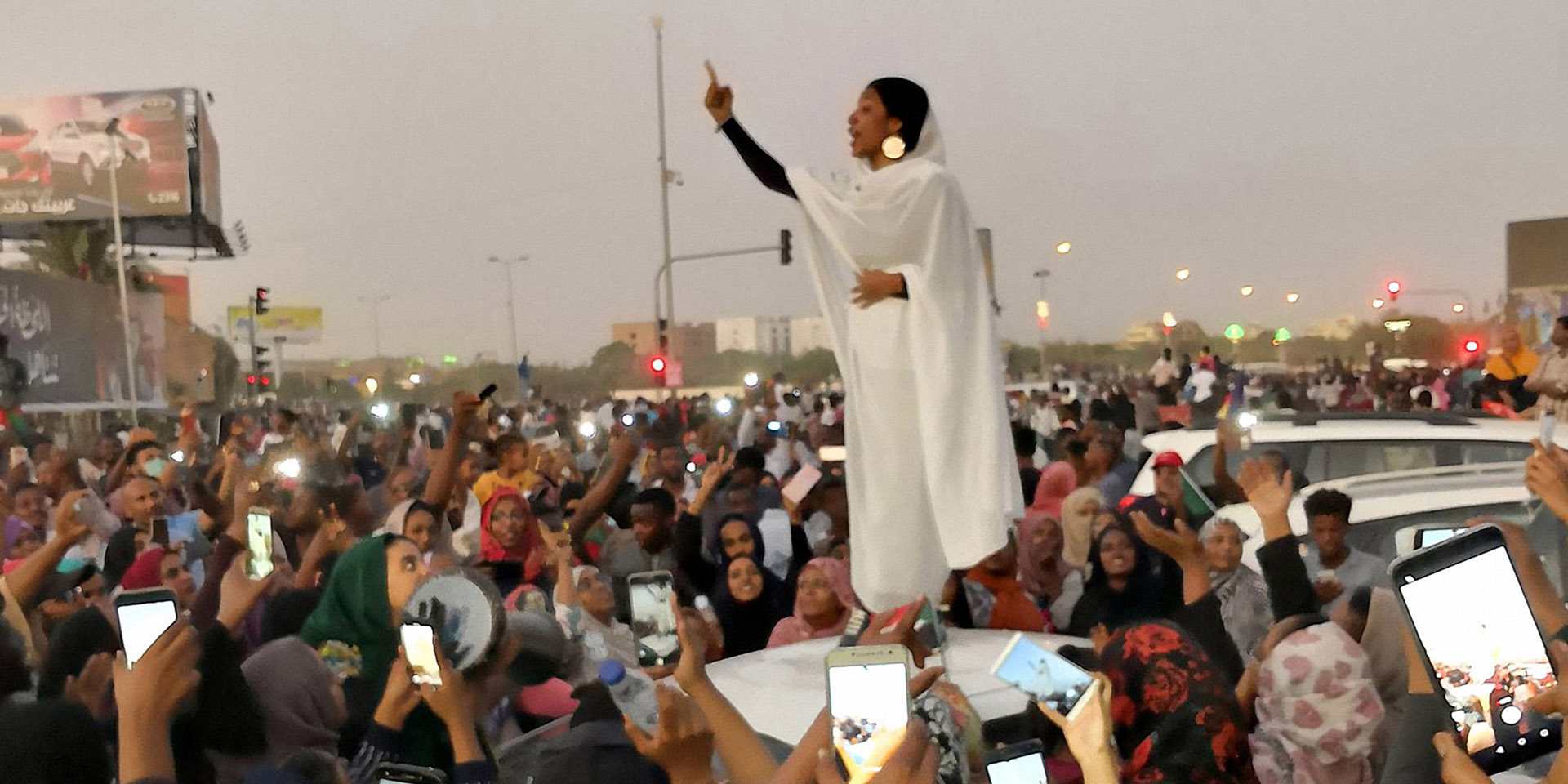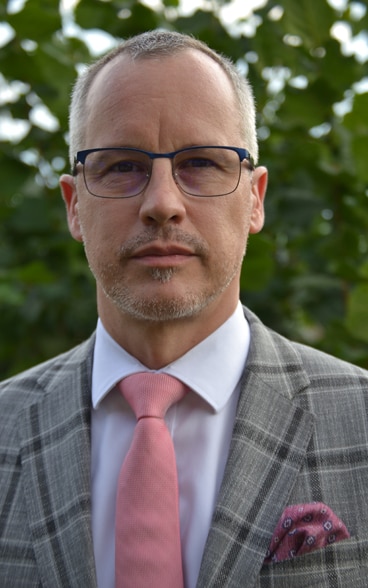Guidelines for Switzerland’s engagement on human rights diplomacy
Taking action in the UN Human Rights Council, raising human rights issues in political talks, and supporting projects to strengthen human rights: just three examples of the instruments that Switzerland uses to promote the universal protection of human rights. This goal is laid down in the Foreign Policy Strategy 2020–23, and the Human Rights Guidelines 2021–24 now being launched by the Federal Department of Foreign Affairs (FDFA) set out how the goal is to be achieved. This requires steadfastness and patience, says Ambassador Simon Geissbühler, Head of Peace and Security at the State Secretariat of the FDFA.

In cooperation with partner organisations, Switzerland has continued to successfully advocate at national level for laws to protect human rights defenders in a number of countries. © FDFA
Respect for human rights is a vital prerequisite for prosperity, peace and sustainable development. Human rights are also a key element when countries agree on rules to be recognised and implemented by the international community. As a globally interconnected but independent country, Switzerland also benefits from such a rules-based system. That is why it takes human rights systematically into account when planning and implementing its foreign policy.
Clear evidence of this can be found in the importance that the Federal Council has attached to strengthening and promoting human rights in the Foreign Policy Strategy 2020–23. The strategy pays particular attention to the issues of freedom of expression, the death penalty, torture and minorities. This overarching strategy guides the practical implementation of human rights diplomacy, but how exactly this works in practice is set out in the Human Rights Guidelines 2021–24. The guidelines contain clear principles and specific areas of action designed to bolster the effectiveness and coherence of Switzerland’s efforts to promote human rights abroad.
Switzerland active at bilateral and multilateral level
To implement its human rights policy, Switzerland has at its disposal a broad range of instruments which it can deploy flexibly in its dealings with individual countries and its multilateral activities. In its bilateral relations, Switzerland discusses human rights issues with all countries and at all levels, as a general principle. It also engages in specific human rights dialogues with selected countries. Switzerland’s external network plays a key role in this regard by analysing the human rights situation in host countries and engaging in dialogue on human rights issues with national governments and local social actors. As part of its efforts to promote human rights abroad, Switzerland also implements specific projects in cooperation with a range of partners.
At the multilateral level, Switzerland works within relevant UN bodies as well as regional organisations such as the Council of Europe and the Organization for Security and Co-operation in Europe (OSCE) to bolster observance of human rights. In Geneva, for example, it is supporting discussions on rules to ensure that human rights are respected in cyberspace as well as offline.
Effective Swiss engagement
Switzerland's work on human rights is paying off. Lebanon, for example, passed a new law to combat torture in 2020, with assistance from the FDFA. In cooperation with partner organisations, Switzerland has continued to successfully advocate at national level for laws to protect human rights defenders in a number of countries, including Burkina Faso and Mongolia. Meanwhile, Iran has abolished the mandatory death penalty for drugs offences, something that Switzerland had been working to bring about. In Senegal, Switzerland has helped to ensure that the rights of children and young people are better protected in the justice system. Another milestone is the establishment of the Centre for Sport and Human Rights in Geneva.
"Promoting human rights is a long-term commitment"

Mr Geissbühler, how would you assess the human rights situation worldwide?
I'd say the glass is half full, but there are some worrying trends. On the one hand, more and more countries are signing up to the relevant human rights conventions. There are positive developments, for example, in access to education and in gender equality. On the other hand, the expectation that democracy, the rule of law and human rights would prevail around the world has proved unrealistic. The right to freedom of expression is under pressure worldwide – unfortunately we see that every day.
Torture and ill-treatment also remain widespread. In many places, ethnic, religious, linguistic and other minorities are discriminated against and sometimes persecuted. As well as opening up many opportunities, new technologies create significant risks, such as systematic surveillance, invasions of privacy, curtailment of freedom of expression, and repression. Some countries are increasingly wielding their influence in multilateral organisations to weaken human rights protection and undermine individual rights.
The FDFA has just launched the Human Rights Guidelines for the period 2021–24. What are the key aspects of the guidelines, in your view?
Anyone reading the guidelines will notice a relatively high level of continuity with the previous priorities. And that's the way it should be, because promoting human rights is a long-term commitment, underpinned by principles that don't change arbitrarily. Quick wins are rare. What is needed above all is steadfastness and staying power. In addition to addressing specific key issues such as freedom of expression, the death penalty, torture and minorities, the guidelines set out clear principles for effective and coherent human rights diplomacy. These principles apply to all relevant FDFA bodies as well as the external network. The guidelines also explain how Switzerland will promote human rights in the areas of peace and security, business and sustainability.
Human rights protection has an important role to play in promoting peace and security. What can Switzerland bring to the table here?
Various studies, as well as practical experience, indicate that serious human rights violations can trigger violent conflict. The aim is to enhance the effectiveness of Switzerland's engagement by intertwining human rights more closely with instruments to promote peace and security. Specifically, Switzerland is working, for example, to improve the flow of information between the UN Security Council and the UN Human Rights Council. It is also providing financial support and personnel to international observer missions monitoring the human rights situation in conflict areas (in Ukraine, for example). Even greater use is to be made of Swiss expertise within the OSCE, for instance, to ensure that the promotion of human rights is better embedded as an instrument for conflict prevention.
The guidelines state that more scope should be given to new initiatives and innovative partnerships. Where do you see potential here – in working with business, science/academia or non-governmental organisations, for example?
Economic interests and human rights can be mutually beneficial. In this area, we have been championing construction cooperation between companies, civil society actors and the scientific community/academia for years. This has resulted in effective instruments and partnerships that are outlined in the National Action Plan on Business and Human Rights. Switzerland also works with various stakeholders to support initiatives promoting human rights and international humanitarian law in the context of security services. Another example is the establishment of the Centre for Sport and Human Rights, based in Geneva. Governments, sports associations, sponsors and civil society actors are jointly developing approaches to ensure that human rights are better respected in sport and at major events. In the coming years, it will be important to expand cooperation with the relevant actors, especially when it comes to digitalisation. Our goal of ensuring that human rights apply equally offline and online can only be achieved by working together.


